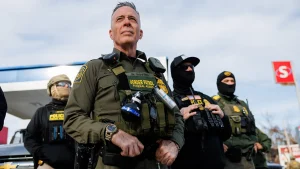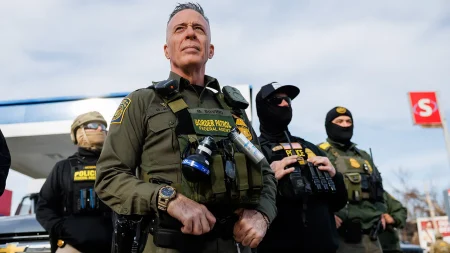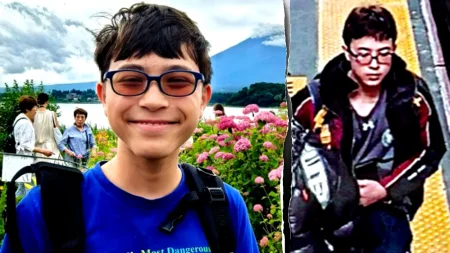Global Leaders Forge New Alliances at Summit as US Absence Reshapes Diplomatic Landscape
Summit Dynamics Shift as United States Stays Home
In an unprecedented diplomatic realignment, world leaders gathered at this year’s international summit against the conspicuous backdrop of an empty American chair. The United States’ decision to boycott the high-profile meeting—a cornerstone of global cooperation for decades—has catalyzed a significant reshuffling of international relationships and negotiating positions. As delegates from over 190 countries converged at the conference center, the absence of American representation created both challenges and opportunities for participating nations. Many countries that have historically aligned themselves with US positions found themselves navigating unfamiliar diplomatic territory, while others seized the moment to assert greater influence in shaping global policy.
The summit, originally designed to address pressing international challenges including climate change, trade regulations, security cooperation, and humanitarian crises, quickly evolved into something more profound: a testing ground for a potential new world order less centered around American leadership. “We’re witnessing a pivotal moment in international relations,” remarked Dr. Eleanor Winters, Director of International Studies at Cambridge University. “When a dominant power steps back from engagement, it creates a vacuum that inevitably gets filled by other actors.” This vacuum was evident throughout the proceedings, as traditional American allies found themselves approached by delegations from China, Russia, the European Union, and emerging powers like India and Brazil—all eager to forge new partnerships in Washington’s absence. The corridors and meeting rooms buzzed with an unusual energy as officials engaged in discussions that would have been unthinkable just a few years ago, signaling what many observers described as a fundamental shift in global diplomatic architecture.
New Alliances Emerge as Nations Adapt to Changing Power Dynamics
The summit’s opening days revealed a flurry of unexpected bilateral and multilateral agreements, with several nations pivoting dramatically from their historical positions. Japan and South Korea, longstanding US security partners in Asia, signed a comprehensive economic cooperation agreement with China that includes provisions for technology sharing and reduced tariffs—areas where American influence has traditionally held sway. Similarly, in a move that surprised many observers, Saudi Arabia and the United Arab Emirates announced a major energy partnership with Russia that will coordinate oil production levels and jointly develop new extraction technologies. European Union representatives, meanwhile, unveiled an ambitious “Strategic Autonomy Initiative” explicitly designed to reduce dependence on American security guarantees and economic policies.
Perhaps most striking was the coalition of middle powers—including Canada, Australia, Singapore, and several Nordic countries—that announced the formation of a new “Multilateral Cooperation Forum” intended to preserve rules-based international order independent of great power competition. “We recognize that the global landscape is changing,” said Canadian Prime Minister in his announcement speech. “Rather than lamenting this change or being paralyzed by it, we choose to be proactive in shaping a future that reflects our values of transparency, fairness, and mutual respect.” This sentiment was echoed across numerous delegations, with many expressing a newfound willingness to explore flexible diplomatic arrangements rather than adhering to rigid bloc politics. Economic analysts noted that the summit produced twice as many bilateral trade agreements as previous meetings, with a particular focus on creating resilient supply chains that don’t rely heavily on any single nation. The speed and scope of these realignments suggested that many countries had been preparing for America’s diplomatic retreat, developing contingency relationships that could be rapidly formalized once the opportunity presented itself.
Critical Rhetoric Toward Trump Administration Reaches New Heights
The diplomatic language typically employed at such gatherings gave way to unusually direct criticism of President Trump and his administration’s foreign policy approach. In a striking departure from protocol, several heads of state directly addressed the American absence in their formal speeches, with rhetoric ranging from expressions of regret to open condemnation. The French President delivered perhaps the most pointed remarks, stating that “retreat into nationalism and abandonment of multilateral forums represents not strength but fear—fear of engagement with ideas different from one’s own.” He added that “true leadership means showing up to difficult conversations, not avoiding them,” in what observers universally interpreted as a rebuke to the American president’s approach to international relations.
Even traditionally cautious allies like the German Chancellor and the British Prime Minister offered thinly veiled criticism, emphasizing that “sustainable global solutions require all major powers to participate in good faith” and that “empty chairs solve no problems.” The Japanese delegation, while more measured in public statements, expressed “profound concern” in background briefings about America’s reliability as a partner. Particularly notable was the intervention from the Australian Prime Minister, who warned that “when democratic powers withdraw from international leadership, the vacuum is filled not by better alternatives, but by those with fundamentally different visions for the global order.” This chorus of criticism highlighted a growing frustration with what many international leaders view as America’s unpredictable and transactional approach to foreign policy under the current administration. Political analysts observed that the willingness to publicly criticize a sitting US president represented a significant erosion of diplomatic deference historically afforded to American leadership, suggesting that traditional allies increasingly perceive lower political costs in distancing themselves from Washington’s positions.
Economic and Security Frameworks Reimagined Without American Input
With American negotiators absent from the table, summit participants made substantial progress on economic and security frameworks that diverge significantly from US preferences. The most consequential development came in the form of a comprehensive trade agreement embraced by 72 nations that explicitly rejects protectionist measures and commits signatories to reduced barriers for goods and services. Unlike previous trade pacts influenced by American priorities, this agreement places stronger emphasis on labor protections, environmental standards, and special considerations for developing economies—provisions that US negotiators had consistently resisted in past negotiations. “This represents a fundamental recalibration of how we approach trade,” explained Brazil’s Minister of Economy. “We’re balancing economic growth with sustainability and social welfare in ways that weren’t possible when negotiations were dominated by certain interests.”
On security matters, European and Asian delegations finalized a cybersecurity cooperation framework that establishes shared protocols for responding to digital threats and data protection standards that differ markedly from American approaches. Similarly, a coalition of 48 nations endorsed new guidelines for artificial intelligence development that emphasize ethical constraints and shared governance—principles that American tech companies have typically opposed. Perhaps most significantly, the summit produced a declaration on military technology transfers that creates a more permissive environment for sharing advanced defense capabilities among signatories, potentially reducing dependence on American equipment and expertise. Defense analysts noted that these agreements could fundamentally alter global security arrangements that have been centered around American partnerships since World War II. “We’re seeing the emergence of a more distributed security architecture,” commented General Maria Hernandez (Ret.), former NATO commander. “Countries are hedging their bets and developing redundant security relationships rather than relying exclusively on any single partner—a direct response to perceived American unpredictability.”
Future of International Cooperation Hangs in Balance as Summit Concludes
As delegates departed the summit, the long-term implications of this diplomatic watershed moment remained uncertain but potentially profound. Many participants expressed hope that the United States would eventually return to full engagement with multilateral institutions, while simultaneously acknowledging that the relationships formed during this period of American absence would endure regardless. “We cannot simply press pause on addressing global challenges while waiting for domestic political cycles in any country, including the United States,” noted the Secretary-General in his closing remarks. “The work of building a more stable, prosperous, and sustainable world must continue, with whoever chooses to participate.”
The summit’s final communiqué, typically a carefully negotiated document reflecting consensus positions, contained multiple provisions that American diplomats would likely have blocked or modified had they been present. These included stronger language on climate change commitments, more robust international oversight mechanisms for financial markets, and explicit support for strengthening institutions like the World Health Organization and the International Criminal Court—bodies that the Trump administration has criticized or withdrawn from entirely. Most significantly, the document included a passage reaffirming the “essential role of multilateral cooperation in addressing transnational challenges,” a direct philosophical counterpoint to the “America First” approach. As delegations returned to their capitals, many diplomats expressed private concerns about navigating a period of reduced American engagement while maintaining hope for eventual renewed partnership. “The international system is undergoing its most significant transformation since the end of the Cold War,” observed Singapore’s Foreign Minister. “What emerges will depend on choices made not just by the United States, but by all nations committed to a rules-based order. The scaffolding of that new system was visible at this summit, for better or worse.” As world leaders departed, the question hanging over the proceedings was not whether global governance would continue without American leadership, but what form it would take—and whether the United States would eventually find itself needing to adapt to new realities it played no role in creating.










